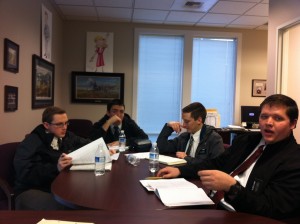“Unto you it is given to know the mysteries of the kingdom of God; but to others in parables; that seeing they might not see, and hearing they might not understand.[1]”
The writings of Nephi become a ‘key’ as it were, to unlocking the mysteries of Isaiah. Full comprehension is therefore relegated to those who accept the Book of Mormon as the word of God. For those whose pride blocks the insights provided by divine intervention, the clarity of Isaiah is looking through a glass darkly[2] and the precepts are coded in a script or tongue undecipherable except to those carrying the blood of Israel.

